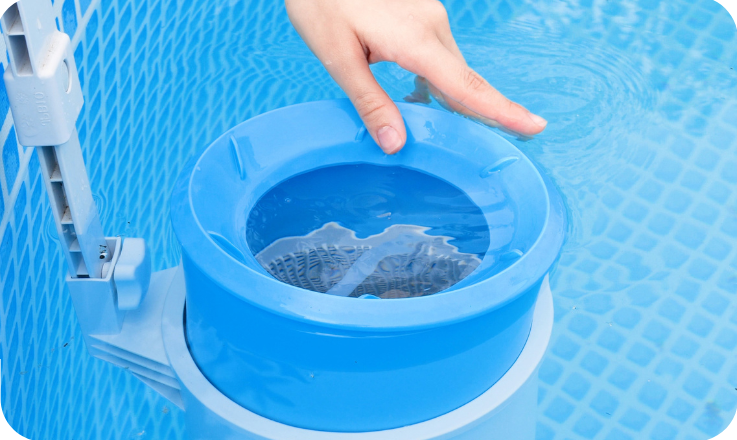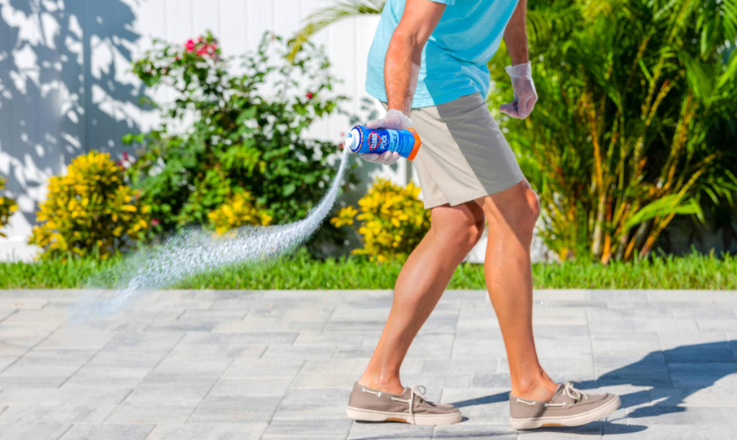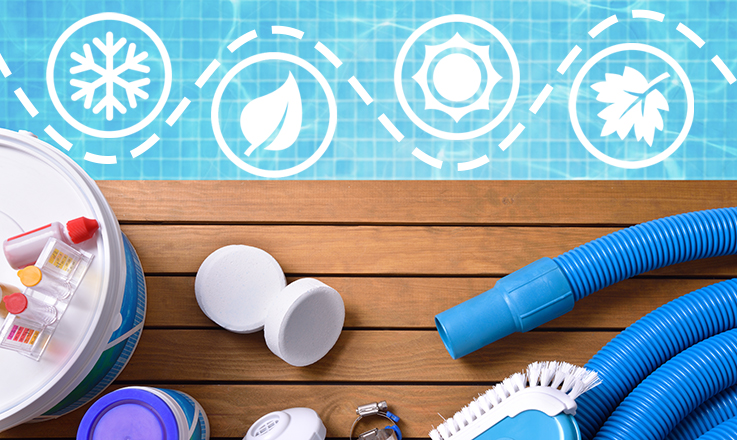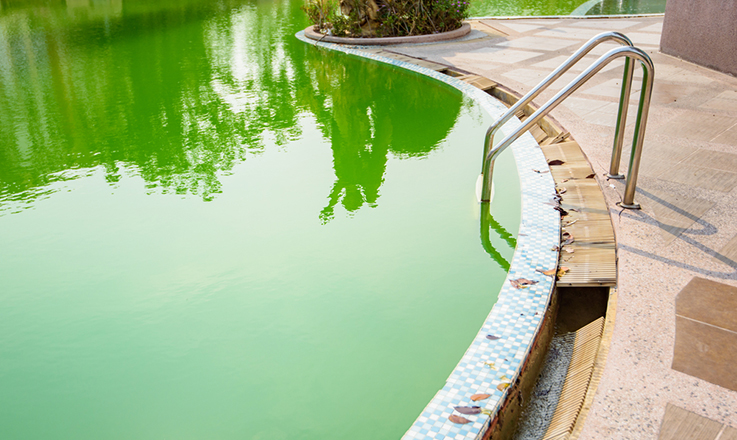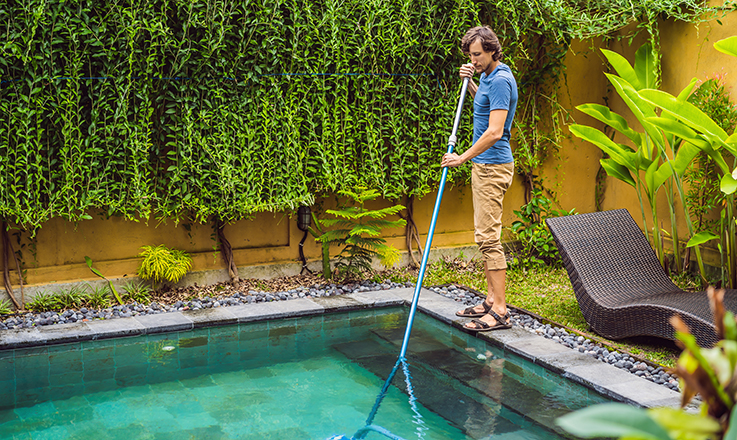Ionizers
Using a swimming pool ionizer in your pool to maintain pool water quality is another option. An ionizer is used to distribute ions of copper, silver, zinc, and other metals into the pool.
The ionizer has an electrode that is plumbed into the pool plumbing to do this. While an ionizer can be a better option than chlorine because of the lack of side effects and smell, an ionizer only kills some bacteria and mostly takes care of algae prevention.
An ionizer does not prevent the spread of certain germs and viruses and does not oxidize. This means that if an ionizer is chosen, it will need to be supplemented with chlorine or another oxidizer to remove swimmer waste such as sweat, saliva, and personal products like deodorants and lotions.
- Pros: no side effects or harsh smell, very good to prevent algae growth in your pool
- Cons: does not kill all bacteria and needs to be supplemented with chlorine or another oxidizer
